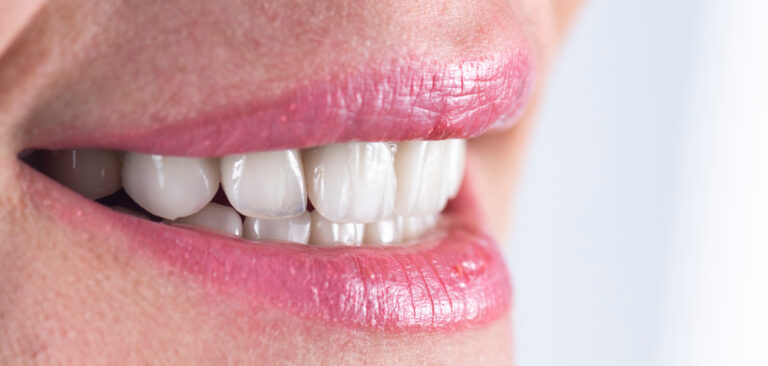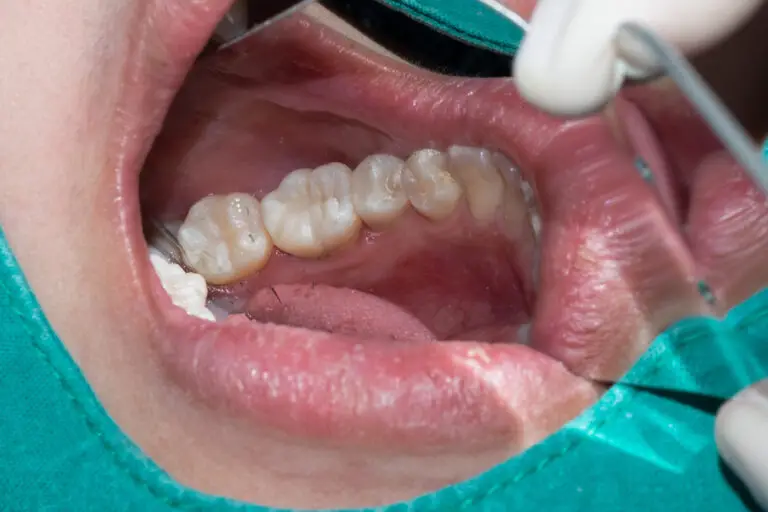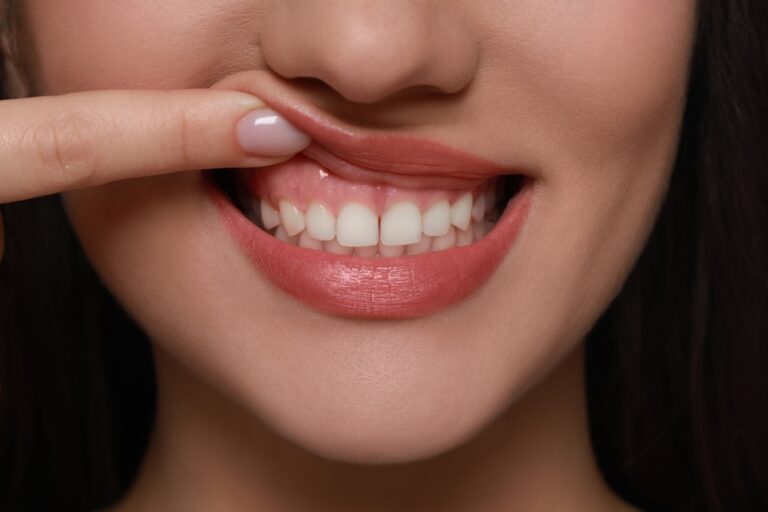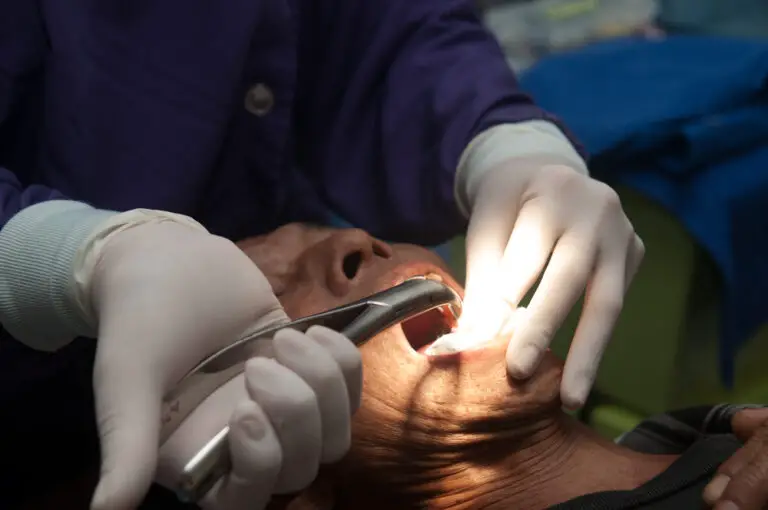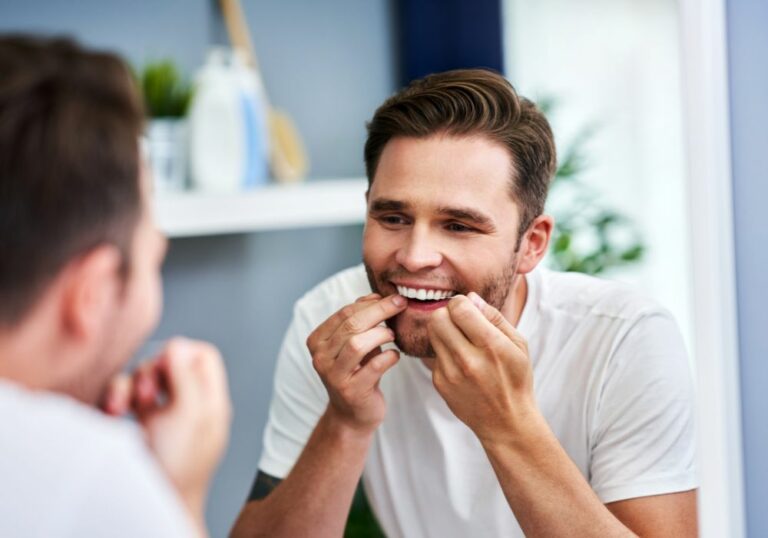Are you wondering how long you should wait to drink water after brushing your teeth? It’s a common question that many people have, and the answer might surprise you. While some people believe that you should wait at least 30 minutes before drinking water, others say that it’s okay to drink water immediately after brushing.
The reason why some people recommend waiting is because toothpaste contains fluoride, which is a mineral that helps to strengthen your teeth and prevent tooth decay. When you brush your teeth, the fluoride in the toothpaste creates a protective barrier on your teeth that can help to prevent cavities. However, if you rinse your mouth with water immediately after brushing, you may be washing away some of the fluoride, which could reduce its effectiveness.
On the other hand, some dentists say that it’s okay to drink water after brushing, as long as you don’t rinse your mouth with water first. This allows the fluoride to remain on your teeth and continue to protect them. Ultimately, the decision of when to drink water after brushing is up to you and your personal preferences.
Understanding the Importance of Brushing Teeth

Role of Saliva in Oral Health
Saliva plays a crucial role in maintaining oral health. It contains enzymes that help to break down food particles and neutralize harmful acids produced by bacteria in the mouth. Saliva also helps to wash away food debris and bacteria from the teeth and gums, which can help to prevent cavities and gum disease.
However, saliva alone is not enough to keep your mouth healthy. You need to brush your teeth regularly to remove plaque and bacteria that can build up on your teeth and cause tooth decay and gum disease.
Why Brushing is Essential
Brushing your teeth twice a day is essential for maintaining good oral health. Brushing helps to remove plaque, a sticky film of bacteria that forms on the teeth. If left unchecked, plaque can harden into tartar, which can only be removed by a dental professional.
Brushing also helps to stimulate the gums, which can improve blood flow and promote healthy gum tissue. In addition, brushing can help to freshen your breath and give you a brighter, healthier-looking smile.
To get the most out of your brushing routine, it’s important to use the right technique. Use a soft-bristled toothbrush and fluoride toothpaste, and brush for at least two minutes each time. Be sure to brush all surfaces of your teeth, including the fronts, backs, and chewing surfaces.
In summary, brushing your teeth is essential for maintaining good oral health. By removing plaque and bacteria from your teeth and gums, you can prevent cavities, gum disease, and other oral health problems. So, make sure to brush your teeth twice a day and use the right technique for a healthy, happy smile!
The Debate: Drinking Water After Brushing
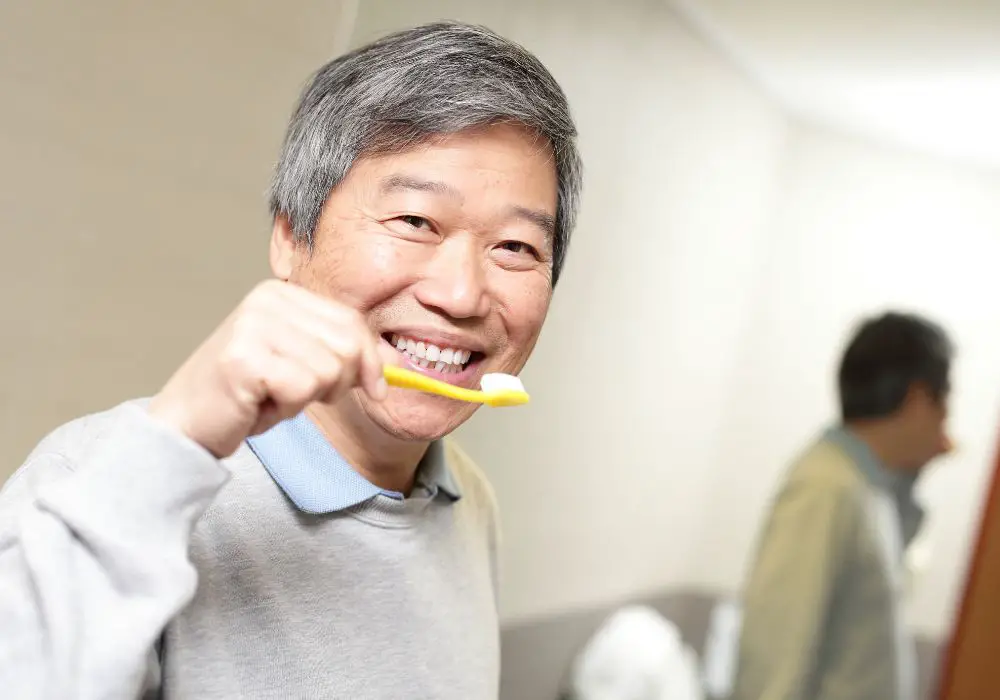
When it comes to dental hygiene, there are many debates about what you should and shouldn’t do. One of the most common debates is whether or not you should drink water after brushing your teeth. Some people believe that drinking water after brushing is beneficial, while others think it’s harmful. Here are the pros and cons of drinking water after brushing.
Pros of Drinking Water
Drinking water after brushing your teeth can help rinse away any leftover toothpaste and debris from your mouth. This can be especially helpful if you use a fluoride toothpaste, as it can help ensure that the fluoride stays on your teeth and continues to protect them. Additionally, drinking water can help neutralize the pH level in your mouth, which can help prevent tooth decay.
Cons of Drinking Water
On the other hand, some people believe that drinking water after brushing your teeth can actually be harmful. This is because toothpaste contains fluoride, which can help strengthen your teeth, but can also be harmful in large doses. Drinking water immediately after brushing can dilute the fluoride in your mouth, reducing its effectiveness. Additionally, drinking water after brushing can make your mouth feel less clean, as the water can wash away the fresh, minty taste of your toothpaste.
Ultimately, whether or not you should drink water after brushing your teeth is up to you. If you want to ensure that you’re getting the most out of your fluoride toothpaste, it’s best to wait at least 30 minutes before drinking water. However, if you prefer to drink water immediately after brushing, it’s unlikely to cause any serious harm. Just be aware that it may reduce the effectiveness of your toothpaste and leave your mouth feeling less fresh.
Ideal Time to Drink Water After Brushing
When it comes to oral hygiene, brushing your teeth regularly is one of the most important things you can do to keep your teeth and gums healthy. But what about drinking water after brushing? How long should you wait? Here’s what you need to know.
Impact on Toothpaste Effectiveness
Many toothpastes contain fluoride, a mineral that helps strengthen tooth enamel and prevent tooth decay. After brushing, it’s important to allow the fluoride in your toothpaste to remain on your teeth for as long as possible to maximize its effectiveness.
If you rinse your mouth with water immediately after brushing, you may wash away some of the fluoride before it has a chance to work. To avoid this, it’s best to wait at least 30 minutes before drinking water after brushing your teeth.
Hydration and Oral Health
While it’s important to wait before drinking water after brushing, it’s also important to stay hydrated throughout the day. Drinking plenty of water can help flush away food particles and bacteria that can cause tooth decay and gum disease.
To stay hydrated and maintain good oral health, try to drink water throughout the day, rather than just after brushing your teeth. You can also try drinking water with meals, which can help wash away food particles and reduce the risk of tooth decay.
In summary, it’s best to wait at least 30 minutes after brushing your teeth before drinking water to maximize the effectiveness of fluoride in your toothpaste. However, it’s also important to stay hydrated throughout the day to maintain good oral health.
Tips for Maintaining Good Oral Hygiene
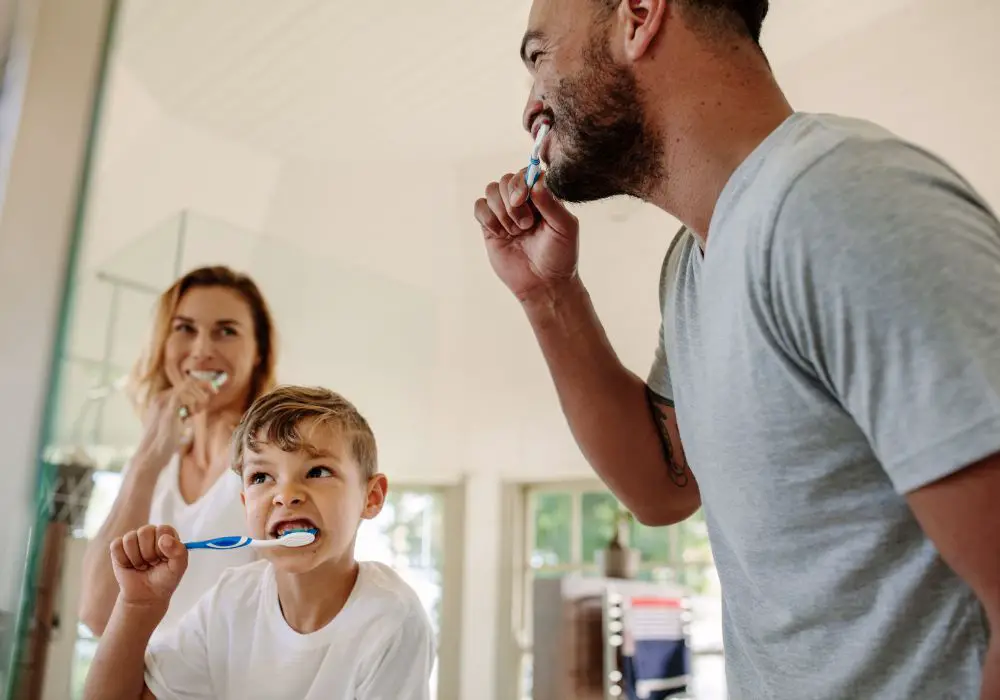
Maintaining good oral hygiene is essential for keeping your teeth and gums healthy. Here are some tips to help you maintain good oral hygiene:
Proper Brushing Techniques
Brushing your teeth properly is essential for removing plaque and preventing tooth decay and gum disease. Here are some tips for proper brushing:
- Brush your teeth twice a day, for at least two minutes each time.
- Use a soft-bristled toothbrush and fluoride toothpaste.
- Brush all surfaces of your teeth, including the front, back, and chewing surfaces.
- Use gentle circular motions and avoid brushing too hard, as this can damage your gums.
- Don’t forget to brush your tongue to remove bacteria and freshen your breath.
Importance of Regular Checkups
Regular dental checkups are essential for maintaining good oral health. Your dentist can detect early signs of tooth decay and gum disease, and provide treatment before they become more serious. Here are some reasons why regular dental checkups are important:
- Your dentist can remove plaque and tartar buildup that you can’t remove with brushing and flossing alone.
- Your dentist can check for signs of oral cancer, which is more treatable when detected early.
- Your dentist can identify and treat tooth decay and gum disease before they cause more serious problems.
- Your dentist can provide advice on proper brushing and flossing techniques, and recommend products that can help improve your oral health.
By following these tips and visiting your dentist regularly, you can maintain good oral hygiene and keep your teeth and gums healthy.
Frequently Asked Questions
How long should I wait before drinking water after brushing my teeth?
It is recommended to wait at least 30 minutes after brushing your teeth before drinking water. This is because the fluoride in toothpaste needs time to be absorbed into your teeth to help protect them against cavities. Drinking water too soon after brushing can wash away the fluoride and reduce its effectiveness.
Is it okay to drink water after brushing my teeth?
Yes, it is okay to drink water after brushing your teeth. In fact, drinking water can help rinse away any remaining toothpaste and food particles in your mouth. Just make sure to wait at least 30 minutes after brushing to allow the fluoride in the toothpaste to be absorbed into your teeth.
Should I rinse my mouth after brushing my teeth?
It is not recommended to rinse your mouth with water or mouthwash immediately after brushing your teeth. This is because you will wash away the fluoride in the toothpaste, which can reduce its effectiveness. Instead, spit out the excess toothpaste and let the remaining fluoride stay on your teeth.
How long should I leave toothpaste on my teeth?
You should leave toothpaste on your teeth for at least two minutes while brushing. This gives the fluoride in the toothpaste enough time to be absorbed into your teeth and provide protection against cavities.
Can I drink water 20 minutes after brushing my teeth?
It is recommended to wait at least 30 minutes after brushing your teeth before drinking water. This allows enough time for the fluoride in the toothpaste to be absorbed into your teeth and provide protection against cavities.
Can I drink water right after I wake up or do I need to brush my teeth first?
It is recommended to brush your teeth first thing in the morning before eating or drinking anything. This helps to remove any bacteria that may have built up in your mouth overnight and freshen your breath. After brushing, you should wait at least 30 minutes before eating or drinking anything to allow the fluoride in the toothpaste to be absorbed into your teeth.

